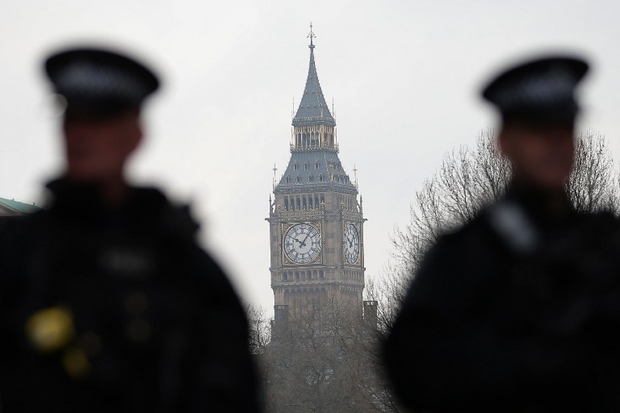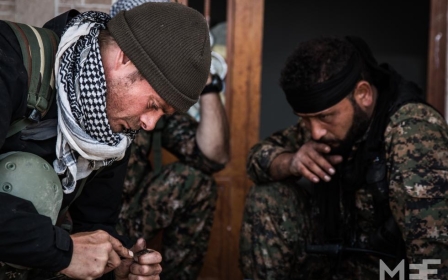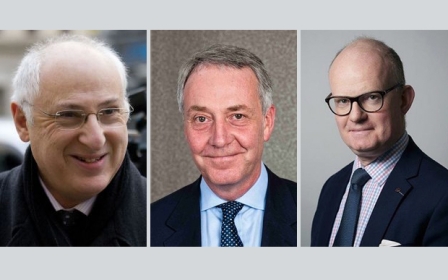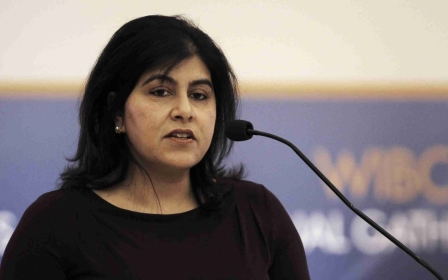The key to fighting terrorism in the UK? Listen to young British Muslims

Since the war started, between 700 and 850 British citizens are estimated to have travelled to Syria to fight against forces loyal to President Bashar al-Assad.
The rise in young British Muslims travelling from the UK to Syria since 2014 has raised several questions about the UK government counter-terrorism's strategy and policy. What happens to young and vulnerable returnees? And how can we ensure that these individuals are reintegrated back into society without posing a risk?
Within the current climate on radicalisation and Syria, listening to the voices of young British Muslims is therefore crucial if the UK government, the police and other key stakeholders are serious about preventing the escalation of young people going out to fight in Syria.
For example, individuals such as Talha Asmal, who was a bright 17-year-old A-level student and lived in Dewsbury, West Yorkshire, along with his friend Hassan Munshi travelled in March 2015 to Syria to fight for the Islamic State (IS) group.
Two months later, Talha became the youngest ever suicide bomber from Britain, after he was killed when he and three other bombers detonated truck bombs attacking a oil refinery in Iraq.
In an attempt to better understand why, like Talha, they have travelled to fight to Syria, I recently interviewed young British Muslims across the UK. My study revealed a major gap between the government's policy towards returnees and what they believe they need to reintegrate and leave their extremist groups behind.
UK response towards home-grown extremism
In tackling the threat posed by IS, the British government has enacted counter-terrorism laws and given the police broader powers to help tackle this phenomenon.
For example, following the Westminster terror attack on 22 March, the Home Secretary announced that the UK government must have the ability to monitor people's WhatsApp messages. In the same vein, the former home secretary, Theresa May, announced in 2013 that anyone travelling to Syria could expect lengthy sentences on their return and, in some cases, would have their passports confiscated and their nationality stripped.
In one case, Majida Sarwar from Birmingham went to the police when she realised her son, Yusuf Sarwar, had left for Syria in May 2013. Sarwar had left a note for his mother admitting that he had gone to Syria to help “the oppressed and to fight the enemies of Allah there”. When he returned in January 2014, he was arrested and detained in Belmarsh high security prison and sentenced to 12 years' imprisonment.
In late 2013, May drew criticism when she revoked the citizenship of 20 dual nationals under deprivation of citizenship orders. The Home Office stated: “This government will take all necessary steps to protect the public. Citizenship is a privilege, not a right, and the home secretary will remove British citizenship from individuals where she feels it is conducive to the public good to do so”.
What young British Muslims really think
Apart from the issues about how to prevent people from going to fight in Syria, there is also an increasing concern about what to do with the returnee fighters from Syria.
For example, much of the debate should be focused on what to do with young and vulnerable children who are likely to have been traumatised by what they have seen, including dead bodies, mass murder and, in some cases, hundreds of young girls enslaved as prisoners.
The UK government must ensure that it is able to provide suitable care for these young and vulnerable people, some of whom are vulnerable in multiple ways, instead of treating them all as criminals and assuming they are guilty. Right now, we do not have any direct policies that can help to deal with them.
Unless we urgently understand their needs and then develop policy measures to address them appropriately, these individuals risk further harm or engaging in further radical activities. The desire for many of these individuals to return offers an opportunity: if dealt with appropriately, many of these same individuals could instead provide a counter-narrative which could be used to help discuss the dangers of joining IS.
However, in the absence of a meaningful policy in this area, the UK risks abandoning these young people who are then likely to return to those extreme and radical groups which offer a greater sense of identity, belonging, unity and security.
'That don't make me a terrorist'
Denmark, a country that has seen a huge increase in the rise of foreign fighters travelling to join IS, has created a unique method of helping foreign fighters reintegrate back into society. They are all offered practical help including medical assistance, counseling and help with job applications.
This form of early collaboration between agencies and ex-foreign fighters is proving to be a success. As Steffen Nielsen from East Jutland Police, who is engaged in the programme, noted: “We screen each fighter, we assess their needs. We engage with their families and friends, and their mosque, so that they have a well-functioning network around them. This can reduce the risk of them being further radicalised."
UK government proposals to block the return of British-born extremists also risks leaving individuals stateless and could lead to a further sense of alienation and a pathway towards radicalisation. My research study with young British Muslims has found that they feel the language around Syria has meant they are all being labelled as extremists.
As one participant stated that: “It keeps getting to me that it’s us Muslims and we are somehow the problem. I am a Muslim and I am proud. But that don’t make me a terrorist.”
The study has also found that that if returnees feel disillusioned, marginalised and alienated by state measures, then we risk jeopardising any chances of meaningful engagement and opportunity for change.
- Imran Awan is an associate professor in criminology and an expert on issues related to Islamophobia, cyber hate, policing, security and counter-terrorism. He is the author of a number of papers and books in this area and is editor of Islamophobia in Cyberspace: Hate Crimes Go Viral (2016).
The views expressed in this article belong to the author and do not necessarily reflect the editorial policy of Middle East Eye.
Photo: Armed police officers secure the area near the Houses of Parliament in central London on 23 March 2017 the day after the 22 March terror attack in Westminster claimed at least three lives including that of police officer Keith Palmer (AFP)
Middle East Eye propose une couverture et une analyse indépendantes et incomparables du Moyen-Orient, de l’Afrique du Nord et d’autres régions du monde. Pour en savoir plus sur la reprise de ce contenu et les frais qui s’appliquent, veuillez remplir ce formulaire [en anglais]. Pour en savoir plus sur MEE, cliquez ici [en anglais].





